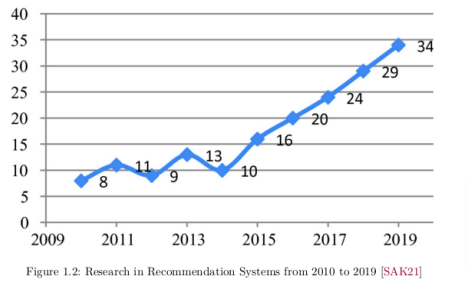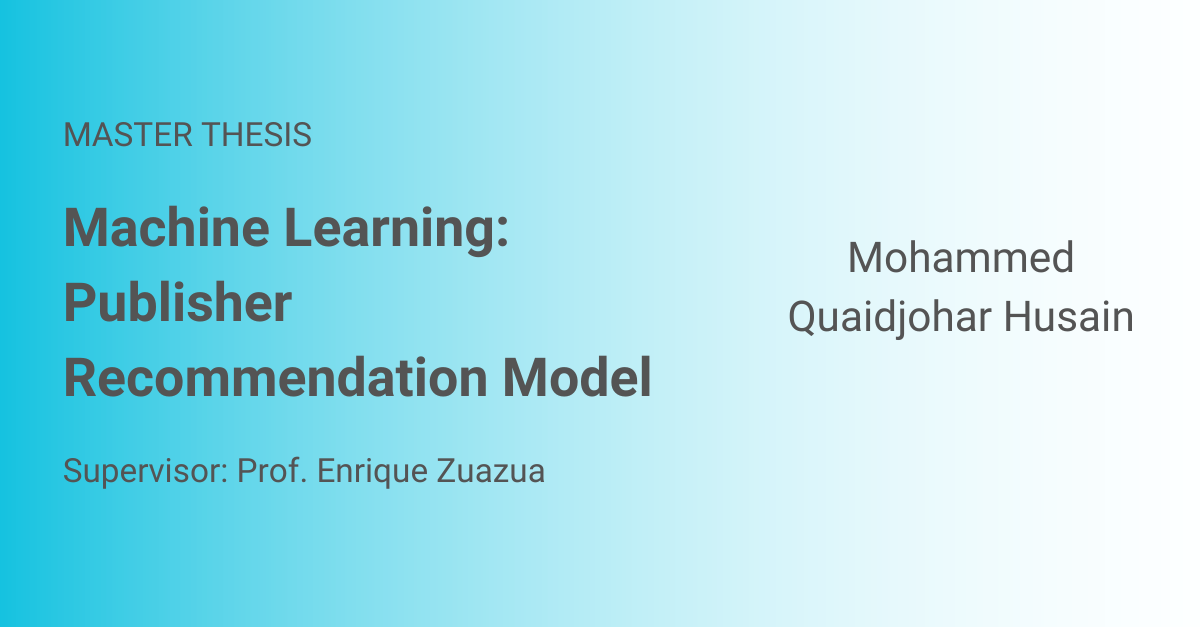Master Thesis: “Machine Learning: Publisher Recommendation Model”
Author: Mohammed Quaidjohar Husain
Supervisor: Prof. Dr. DhC. Enrique Zuazua
Date: July 7, 2023
The exponential rise of digital content in recent years, along with the spread of inter- net platforms, has led to an excessive influx of data from all sources, which causes an information overload issue. Finding your way through this enormous sea of data may be difficult, time-consuming, and even intimidating. By offering consumers individualized recommendations and materials that are catered to their unique interests and preferences, recommendation systems have evolved as a solution to this issue. Systems that make recommendations to users based on past preferences, interactions with and engagement with products, etc. are known as recommender systems. The inter- net transmits a lot of data, and much of it reveals information about the user’s search activities. The data used to make recommendations can come from articles and user- generated content, or it can come from explicit evaluations when readers are requested to review articles. Customers may receive helpful ideas from them that direct them to their intriguing products. Such apps might suggest books, CDs, and other products on Amazon.com, television shows, and movies on Netflix for instance. A wide range of businesses, including e-commerce, media, entertainment, and more, have acknowledged the value of recommendation systems. To give individualized suggestions, enhance client retention, increase sales, and increase revenue, businesses are investing more and more in the creation and improvement of recommendation algorithms. A recommendation system’s performance depends on its capacity to comprehend user preferences, foresee their needs, and provide precise and timely recommendations.
(…) In order to recommend products or informa- tion, collaborative filtering makes use of user data to spot trends and similarities among users. Contrarily, content-based filtering concentrates on examining the characteristics and attributes of things to suggest equivalent ones. Hybrid strategies combine the two methodologies to offer a more thorough and precise recommendation.
See all details at:
Master Thesis: “Machine Learning: Publisher Recommendation Model”, by Mohamed Hussain (July 7, 2023)
Supervisor: Prof. Dr. DhC. Enrique Zuazua
Master Thesis zur Erlangung des Grades Master of Science (M.Sc.) im Studiengang Data Science am Department Mathematik der Friedrich-Alexander-Universität Erlangen-Nürnberg vorgelegt am 7.Juli 2023 von Mohammed Quaidjohar Husain






